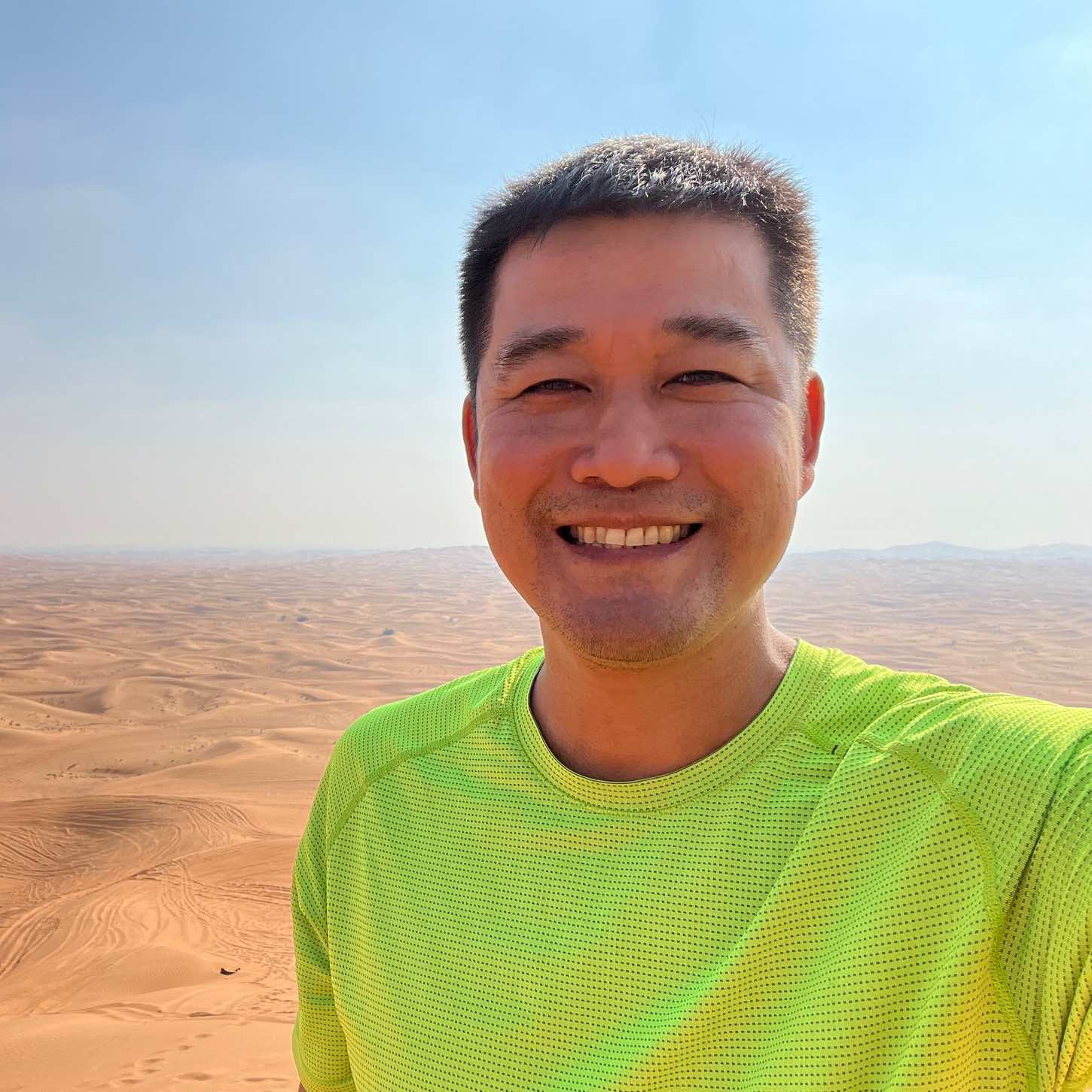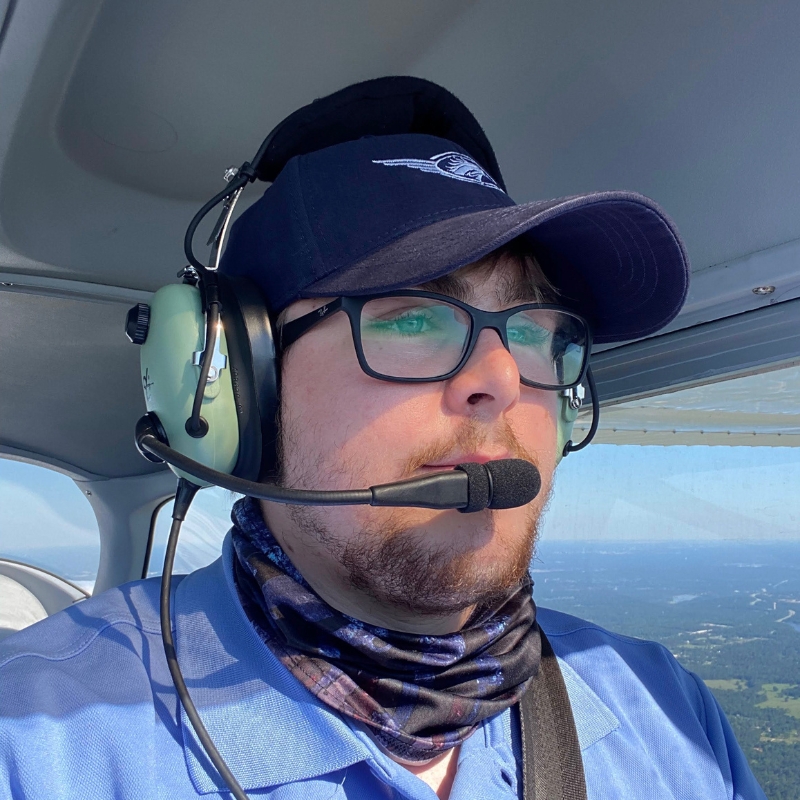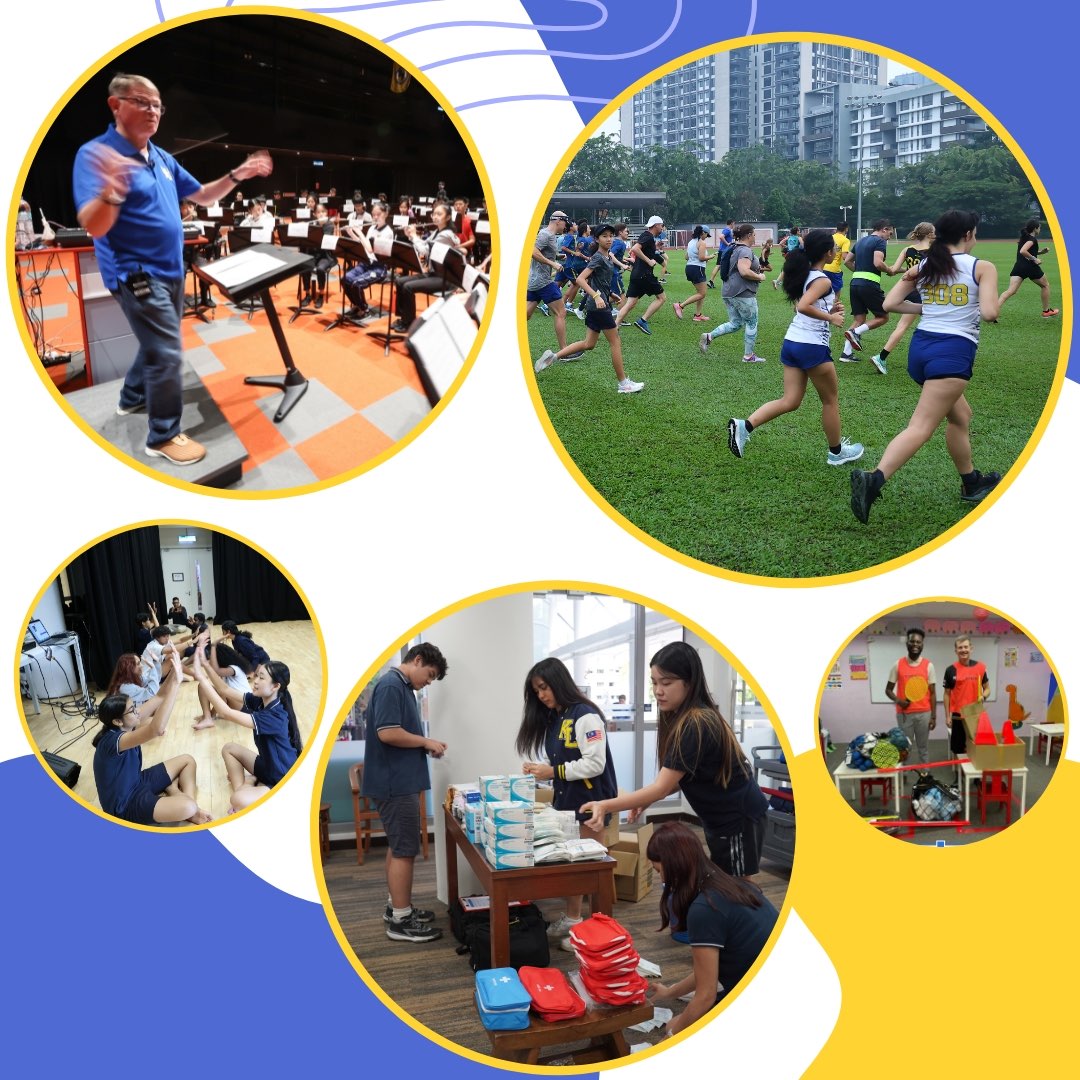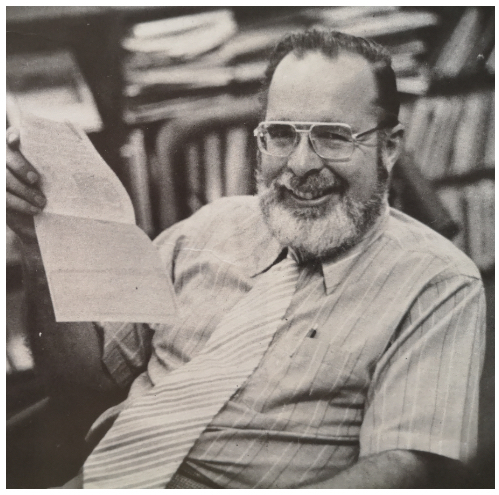Patrick Jonsson ’02
Born in Sweden, Patrick moved to Warsaw, Poland at age four and attend the American School of Warsaw. Four years later he moved to ISKL where he stayed for 10 years, graduating in 2002.
Patrick’s musical passions crossed the genres, and his punk rock band ‘Punksoxx’ was a regular contributor to Battle of the Bands and the talent shows. Little did his audience know then, but it was the start of something big!
Patrick shares his successes and memories of ISKL with Lynette MacDonald, Director of Development and Alumni Engagement.
LM: What musical instrument/s did you study and when did your love of music first become apparent…was there a moment that stands out?
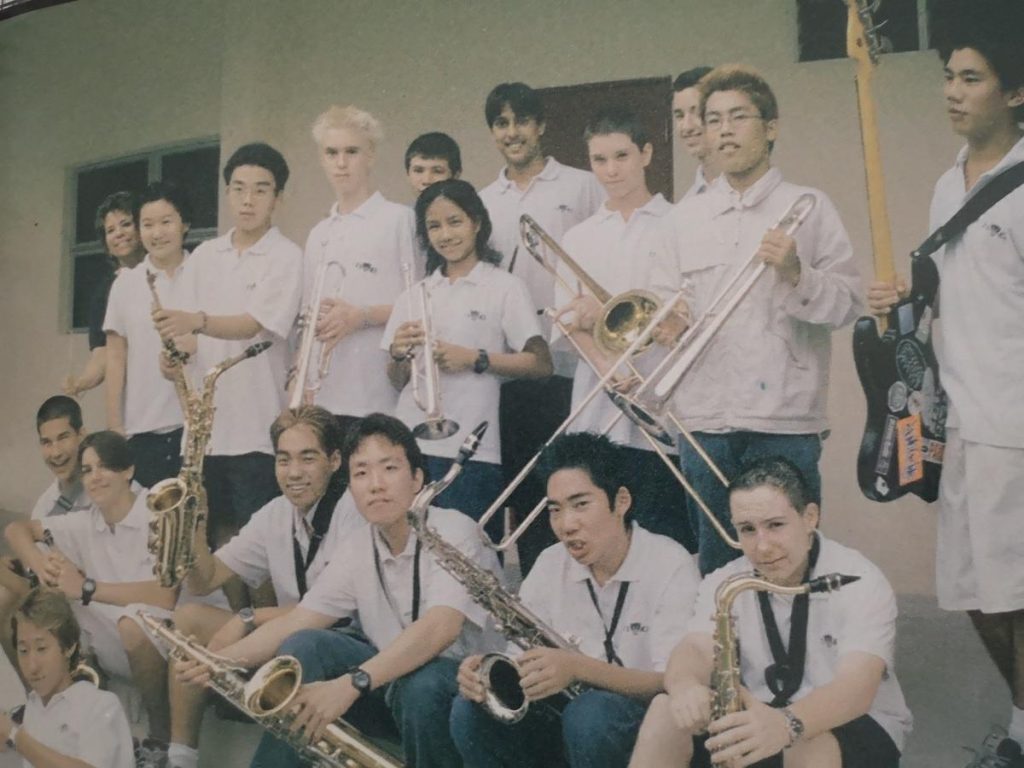
PJ: At ISKL I studied trumpet, but between classes during our free time I would visit the music rooms to borrow a guitar to practice. It wasn’t really allowed at the time, as you had to be in one of the guitar classes in order to use their instruments (which makes sense), but I would pick the lock of the cabinet and pull out a guitar to play and then return it after – I would always give the excuse that the cabinet had been left open so I grabbed one, but then always had to hand it back as soon as anyone noticed. It was most days of the week that this happened, so eventually everyone got annoyed enough at me that they just allocated me my own guitar which they kept in the office so we didn’t have to go through that dance all the time. It was a bit naughty, but everyone knew I was pretty crazy about music and I was better than most of the guitar class students at the time so nobody got too upset ever and just saw it as pretty harmless.
But for my actual formal training at ISKL it was trumpet which I studied. I always thought the music teachers at ISKL were great teachers. I had many, and learned so much from each of them. But the one which sticks out in my mind the most was Lou Davey who sadly recently passed away and my condolences once again go out to her family. She saw something in me I think, so she pushed me a bit harder than some of the others. She would give me extra things to practice outside of class and asked me to join competitions and things like that. All the faculty at ISKL were always great in that way, they cared very much.
LM: During your time at ISKL, what musical or theatrical productions were you involved in? Did you participate in CulCon?
PJ: I was part of the battle of the bands and talent shows most times with my band. The band was called ‘Punksoxx’ and we played punk rock music as the name suggests!
In the band were Manuel Jantos, Johan Wisung, Justin Graves, and me. So four of us. We all were there for quite a few years together and were very close friends. We’re scattered around the globe now but still keep in touch.
LM: Were there any particular teachers who inspired your interest in music, or who provided useful guidance for your eventual pathway?
PJ: Lou Davey, who I mention above. But also Jeff Taylor who taught me towards the end of my time at ISKL for a couple years. I believe he was my IB music teacher if I remember correctly. He was a brilliant musician and very gifted teacher. I learned a lot from him and learned some really good foundations which prepared me for Berklee College of Music. I am very grateful for my time studying under him, and all the other music teachers. Apart from music, there were so many teachers who I liked very much. Too many to name. ISKL always had excellent faculty and I remember all my teachers fondly.
LM: Tell me about your journey after ISKL – particularly your choice to study at Berklee and the course you chose.
PJ: Like most kids I didn’t really have any great big plans for how I wanted to proceed after High School, but I’d heard of Berklee because an older student who I looked up to had applied to go there. So I applied to just that one school and was very fortunate to have been accepted. Who knows otherwise which direction life would have taken!
LM: You also met your wife Lucia, another ISKL Alumni, in Boston. Did you know each other well before you met there?
PJ: Yes, well technically we met at her birthday party in Malaysia which me and my friends crashed! But we didn’t really say more than hello to each other at the time and actually properly met in Boston via a mutual friend, also an ISKL alumni. She then did a summer course in Prague (where my parents moved to after Malaysia), so we actually always say that it was in Czech Republic where we properly got to know one another. Funny story, small world.
LM: You have worked on two Oscar nominated films; “Virunga” in 2014, and “The White Helmets” which won an Oscar in 2017, and your score for “The White Helmets” was EMMY nominated. It’s tempting to think composers like yourself start out doing this high profile work, but tell us more about the actual journey…what did you start out doing?
PJ: It’s such a privilege and an honour to be involved in such important and powerful films. I am in awe of the work that the subjects of those films do on a daily basis and the heroics they show. So it’s so rewarding to have the films be recognised on an international stage and to have light shone on these important subject matters. They can both be seen on Netflix, and I believe Virunga has been called one of the highest rated documentaries of all time. It really is a fantastic film and I lived being part of telling that story.
For me, yes, as you say it’s always a long and tough road to reach a place where you can work on projects like this. But I think that work becomes a pleasure when you’re fortunate enough to do a job which brings such fulfilment. I love writing music and I really care about films which can make a difference in the world. So to be able to marry those two passions together is such a gift. I hope I can keep improving, learning, and have more opportunities to work on such incredible projects.
And to answer the second part of your questions – when I arrived in London I actually started working in a recording studio for a few years, where I learned a lot. I was recording bands and various artists on a daily basis and learned so much about songwriting and production which I continue to try to take with me on my current journey. That’s also where I met Orlando, the director of Virunga and worked on his first film Skateistan. I have great memories from my time working in that place.
LM: More recently, you’ve been working on “made for TV” productions. What have been your favorite projects?
PJ: Yes, I’ve been doing TV series work as well. I really enjoyed working on The Alienist. I also had a great time working on a series called Black Earth Rising, starring Michaela Coel and John Goodman. I love the variety of all the projects so very hard to pick favourites.
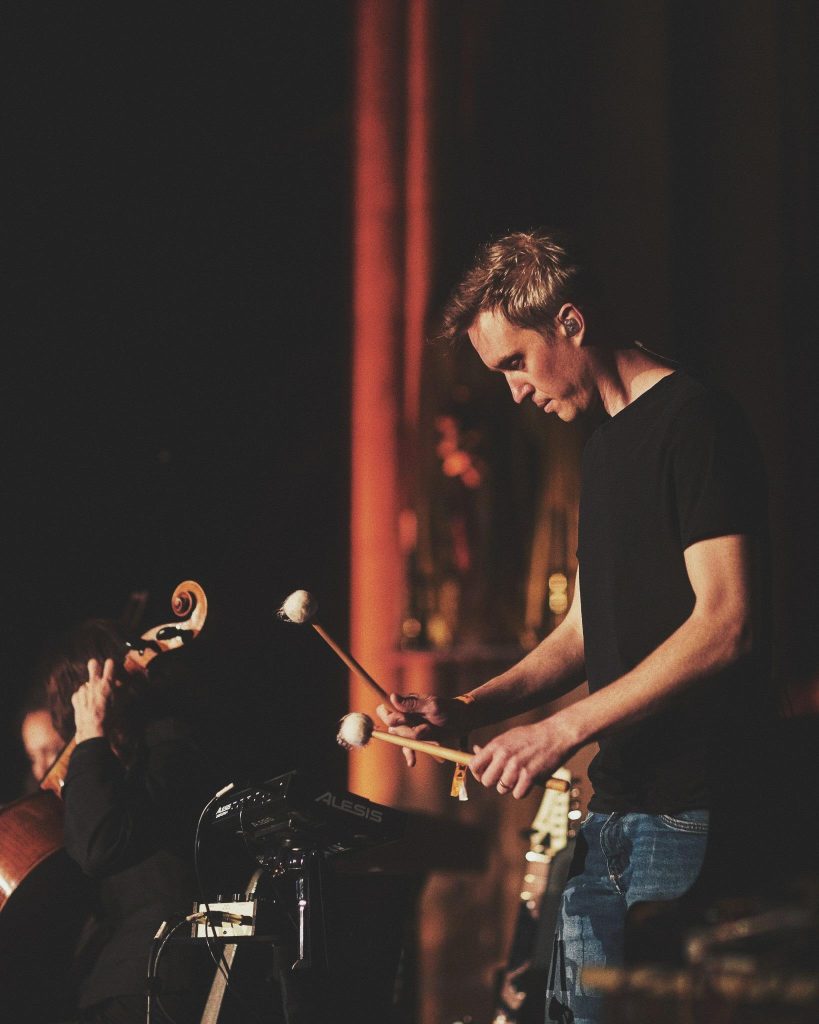
LM: How do you work with a Director on the score for a movie or TV series? What are the creative cues? Is it a post filming job, or are you involved from the outset? Do you ever visit the set to get a feel for the action?
PJ: The process really varies, on some projects you don’t have much time at all while on others you’re involved from the very early on when the director/producer first comes up with the ideas. Each has their pros and cons, and it’s actually really refreshing to have to reevaluate approach for each project I find, because each story really is genuinely different in terms of what works. I have visited set before, but I don’t do that anymore so much as I feel I’m mostly in the way! And in reality that’s not really helpful for the work that I do I don’t think – I’m supposed to be more like the first audience for the filmmakers in a way I always think, and it’s probably more useful for me to respond to the captured footage/edit once it’s been assembled.
Although each project differs, we always try to find a palette of sounds/colours for each project and try to find what are the underlying messages which we can pull out. The things which aren’t said on screen, the bigger motifs and themes wherever possible. At
least that’s the goal! I hugely enjoy the discovery process early on when everything feels new, and then the final part of the process when we are able to involve orchestras, musicians, orchestrators, mixers, etc. I always feel that collaboration and good communication is the key to making any film and any film score work.
LM: How has the new world of made-for-TV streamed content impacted you professionally? Is there more work?
PJ: I do think there is more work in media now yes. I think people have an appetite for new content, so that’s exciting because that means there’s room for many varying creative voices both on the filmmaking side as well as music composition. I really enjoy hearing and seeing new voices and perspectives as I find it awakens ideas in me and challenges me to explore, so I think it’s a very exciting time in our industry (if you temporarily ignore the impact that Covid-19 has had).
LM: You’ve chosen to live in London – has Brexit impacted you professionally?
PJ: I don’t think Brexit has really impacted me directly yet, apart from that I was against it and saddened by the decision to leave the EU. But professionally we’ll see as things unfold I guess. I know there are certain policies being discussed which will hinder the UK music scene. But there are good people, much smarter than myself, who are pushing against many of those things and I believe progress will be made.
I am supportive of anything that will give opportunities to musicians – it’s hard enough already as it is. Nobody needs border regulations to complicate things further. I’m optimistic that agreements will be found. In the meantime people will struggle though. I feel fortunate that I’m able to keep busy at the moment, less because of Brexit and more because of the disruption caused by the pandemic currently.
Performing musicians are the ones who have been hit the hardest by these lockdowns I think. I see many colleagues in various parts of our industry who have been affected by the pandemic – recording studios, orchestrators, performers, venues, equipment hire, teachers, the list is long.
LM: We’re all dealing with lockdowns of varying severity, but how, for a creative person like you, has it changed the way you work, if at all?
PJ: Not much! I’ve been a pretty solitary creature in my studio for the last 10 years anyway, so being in my studio for 14 hours a day is not hugely different. Me and my fellow composers joked at the beginning of the lockdowns that it was just business as usual work-wise, but as time has gone on and a year later I see we’re all starting to crumble a bit and fatigue just like everybody else.
I miss not being able to properly sneak away from the studio in evenings and weekends, I’ve found that difficult. And of course I very much miss live music, restaurants, friends, family, crowded pubs, and all the other things we took for granted. But we’re all going through the same thing so I try to focus on the positives – like the fact that I get to see my wife all day and try to cherish that as much as I can.
LM: Do you ever perform live or are you more of a “behind the scenes” type of person?
PJ: Behind the scenes for sure, but when I launched my album ’Suddenly We Looked Like Giants’ I did do a few gigs. It was fun, but I’m a shy person by nature so it’s not something I massively enjoy. But I am proud of myself whenever I do get up and do it, because it is truly something special to play with/for people. But my favourite musical moments are definitely when I’m exploring tonalities or sonics in my own space while working to picture.
LM: I mentioned the Oscar nomination, obviously a career highlight. Is there any event/accolade that eclipses that one? What work or collaboration are you most proud of?
PJ: One of my career highlights was to visit Virunga National Park in DRC. We watched the film together with the families of the park rangers on a bed sheet hung up on the side of a building. Under the light of an active volcano shining red up into the sky which was covered in the clearest stars. I’ve never seen anything like it and will always remember that moment. If I hadn’t been involved in that project I don’t think I’d ever have found myself in that beautiful situation, so am very thankful for that, and that is definitely one of my career highlights.
LM: What do you do in your free time…do you listen to music, or is that too much like work?
PJ: I love music and love listening to it – I find listening to music is a great reset button for pulling me away from whatever I’m working on and I appreciate it just like everybody else. I find I’m mostly able to turn off my analytical mind and just sit in it, so it definitely doesn’t feel like work. I also really love scuba diving, and just generally getting into nature. It’s one of the things which has been keeping me sane during lockdown as well – long hikes/bike rides/walks.



